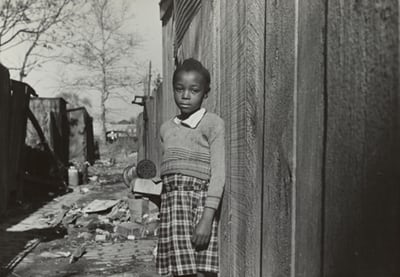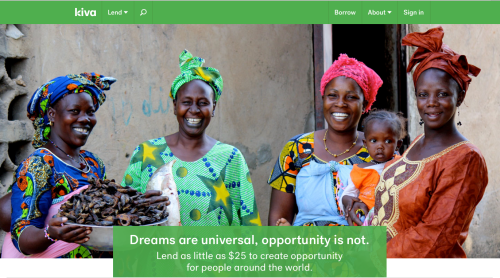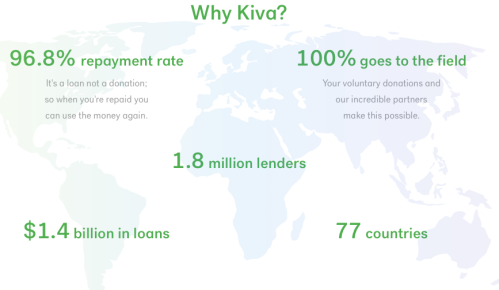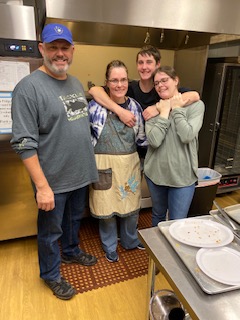The ability to move out of poverty is significantly hindered by the isolation that the poor face. Poverty comes from having relationships that do not work. Those who fall into poverty lose their network, if they ever had one. Resources are few. The rules on how to live a normal life change to rules on how to survive. How to move out of poverty becomes a mystery which deepens over time. As one activist puts it, the poor are strangers in a strange land.
Our social networks empower us. We have often stressed the importance of housing because neighbors can erase isolation. Unfortunately, there are powerful, systemic forces that work against a family moving out of poverty. A family bouncing from one rental property to another is really in exile. They have no consistent place to begin building a reasonable life.
Reading A Gentleman in Moscow by Amor Towles brought a chilling realization of how a repressive environment can keep people poor. This, from the novel (yes, novels can convey truth):
“The Russians were the first people to master the notion of sending a man into exile at home. As early as the eighteenth century, the Tsars stopped kicking their enemies out of the country, opting instead to send them to Siberia. Why? Because they had determined that to exile a man from Russia as God had exiled Adam from Eden was insufficient as a punishment; for in another country, a man might immerse himself in his labors, build a house, raise a family. That is, he might begin his life anew. But when you exile a man into his own country, there is no beginning anew….”
Wages have been stagnant since the 70’s. That constitutes financial exile in one’s own country. But exile is even more extreme if we consider people of color. We’ve already documented large wage differences between white workers and working people of color.

Slaves exported from West Africa to the United States were certainly exiled from their home countries. The Emancipation Proclamation brought a sense of freedom to slaves and the acceptance that America might now be considered “home,” but suppression only morphed into new forms. The oppression of people of color in America keeps them in exile (in their own country) even today.
What’s the evidence? Besides low wages, slums, urban ghettos, “the projects” and prisons are today’s ways of controlling people of color. Gerrymandering and voter suppression are also oppressive. The appointment of emergency managers of cities and schools mute the voices of elected officials and can result in unilateral acts such as scrapping union contracts.
The building of I-75 in Detroit is another example. The 350 thriving black businesses of the vibrant Black Bottom neighborhood were destroyed by running the highway through it. The neighborhood never recovered. How did this neighborhood form only to be destroyed? 80% of all deeds in Detroit, forbade black people from purchasing land, forcing them to congregate in one area that was the exception.
A favorite Bible passage of mine is found in Jeremiah 29. “….Build houses and live in them; plant gardens and eat what they produce. Take wives and have sons and daughters; take wives for your sons, and give your daughters in marriage, that they may bear sons and daughters; multiply there, and do not decrease. Seek the welfare of the city, where I have sent you into exile, and pray to the Lord on its behalf, for in its welfare you will find your welfare.”

The point is that a family can start over and prosper while in exile IF it has been sent elsewhere. The stark irony for people of color in America is that they are exiles in their own land. Oppressive structures keep them poor. Slums, ghettos, “the projects” and prisons are the Siberias of America.

 The requests for loans can be well over a thousand dollars, so I am lending $25 with a group of lenders. I have never received notice of a loan default.
The requests for loans can be well over a thousand dollars, so I am lending $25 with a group of lenders. I have never received notice of a loan default.
 Steve remarks that, “We love to do this. Michael often says that cooking breakfast is his favorite day.” The motivation comes from having financial security and wanting the same for everyone else. It’s one way to live one’s faith. We don’t have to create compassion; it’s built in.
Steve remarks that, “We love to do this. Michael often says that cooking breakfast is his favorite day.” The motivation comes from having financial security and wanting the same for everyone else. It’s one way to live one’s faith. We don’t have to create compassion; it’s built in.
